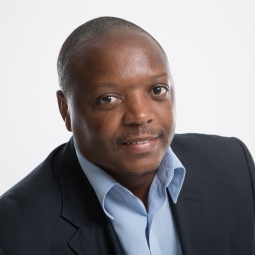Harnessing digital technologies for development
The Sheffield University-led strategic research network partnership begins its research into digital data for development with the initial meeting held at the CSIR. The newly established strategic research network partnership to explore the role of digital technologies and participatory approaches in international development had its kick-off workshop at CSIR Meraka Institute on 24-26 April.
The Sheffield University-led strategic research network partnership begins its research into digital data for development with the initial meeting held at the CSIR.
The newly established strategic research network partnership to explore the role of digital technologies and participatory approaches in international development had its kick-off workshop at CSIR Meraka Institute on 24-26 April.
The strategic research partnership is led by a team of researchers from the Sheffield Institute for International Development. The network consists of 29 leading academics and practitioners in international and community development and digital from the United Kingdom, South Africa, Tanzania, Kenya, Brazil, Norway and Macao. The CSIR is one of the four non-university based partners along with Oxfam Digital, UNICEF and the global umbrella organisation of mobile phone companies, GSMA.
Harnessing digital technologies for development
This is all made possible through a grant awarded to the network by the Economic and Social Research Council Global Challenges Research Fund. The principal-investigator for the network is Prof Dorothea Kleine. She is the head of the Digital Technologies, Data and Innovation at Sheffield University’s Institute for International Development. Explaining the research to be conducted by the network, Prof Kleine says, “Our research collaboration is about answering the overarching question: 'How can new digital data, both "big data" and "small data", be used to support development efforts? We particularly want to know whether this might be done in ways which empower the marginalised rather than reinforce inequality,” she says.
Prof Kleine notes that new digital technologies offer great opportunities for international development for more effective service delivery and more participatory citizen engagement. However, she also notes that the same technologies come with risks such as new forms of exclusion, surveillance and new invisibilities. She is of the view that there is more knowledge to be gleaned if a multinational viewpoint is adopted. “We can learn from each other to map what we know, across countries, institutions and sectors, and then develop strategies to explore what we do not know together.”
Many heads make work light
Detailing how the research will be undertaken Prof Kleine says, “There are four themes of enquiry: first is Big Data, "small data" and data science to inform progress towards the Sustainable Development Goals (co-developed with Oxfam); second is participation and value-based design of socio-technological innovation (co-developed with the CSIR); third is citizen participation, data science, information, communication and technology for peace building (co-developed with the United Nation University Macau; and the fourth is youth participation and innovative digital methods (co-developed with the United Nations Children’s Fund (UNICEF).” She says there will be a series of meetings held in 2017/2018 where partners will work in diverse teams to develop joint research agendas.
Seven academics from across the University of Sheffield are involved in the network. Among the other partners are University of Oxford, Oxford Internet Institute, University of Cape Town, Federal University of Rio de Janeiro, United Nations University Macau Overseas Development Institute, Dedan Kimathi University of Technology, Norwegian University of Life Sciences, University of Manchester, Bank of Tanzania, Sheffield Hallam University, Jomo Kenyatta University of Agriculture and Technology, Makerere University and Observatorio de Favelas, a Brazilian non-governmental organisation specialising in participatory digital film and photography.

